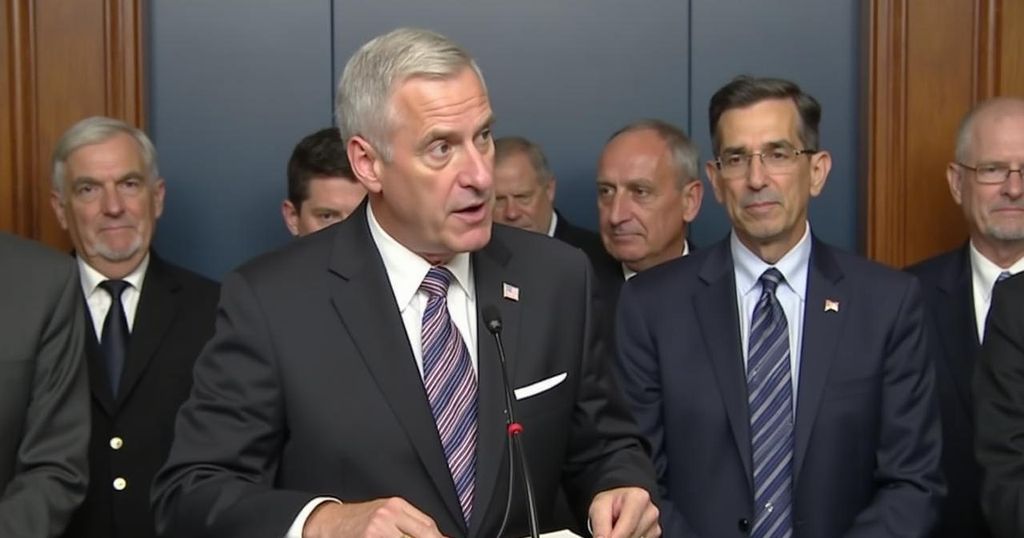The Biden administration believes it has secured assurances from Israel against striking Iranian nuclear or oil sites in response to recent missile attacks. The U.S. has deployed a THAAD battery to enhance Israel’s defenses while stressing the need for increased humanitarian aid to Gaza. Ongoing tensions raise concerns about potential escalation into regional conflict, with both diplomatic and military considerations at play.
The Biden administration has reportedly secured assurances from Israel that it will refrain from striking Iranian nuclear or oil installations in retaliation for recent Iranian missile attacks, according to two U.S. officials. This development comes alongside the deployment of a United States Terminal High Altitude Area Defense (THAAD) battery and approximately 100 personnel to Israel to bolster its air defenses, in light of the threat posed by Iranian ballistic missile capabilities. Despite these assurances, U.S. officials cautioned that Israel’s commitments are not guaranteed and the dynamics could shift given Israel’s historical response patterns influenced by domestic political considerations. A notable instance occurred just last month when U.S. officials were led to believe by Israeli representatives that Prime Minister Benjamin Netanyahu supported a cease-fire initiative in Lebanon. This proposal was swiftly undermined by Israel’s subsequent airstrike that resulted in the death of Hezbollah leader Hassan Nasrallah. Concurrently, Defense Secretary Lloyd Austin and Secretary of State Antony Blinken have formally expressed concerns in a letter to their Israeli counterparts, emphasizing the necessity for Israel to enhance humanitarian aid access to Gaza within a timeframe of thirty days; non-compliance could jeopardize Israel’s eligibility for U.S. military funding. The situation remains tense in the Middle East, particularly following Iran’s launch of approximately 180 ballistic missiles on October 1, which the U.S. assisted in intercepting. With both Israeli military operations against Hamas and increased conflict with Hezbollah in Lebanon, there is a rising apprehension that these events could escalate into a broader regional conflict. President Biden has articulated his opposition to any Israeli military action targeting Iranian nuclear facilities, advocating for alternative strategies, particularly given potential repercussions on global oil prices ahead of the U.S. elections. Communication between President Biden and Prime Minister Netanyahu remains limited, with their last conversation occurring after a seven-week hiatus. However, Defense Secretary Austin has maintained regular contact with Israeli Defense Minister Yoav Gallant. In their recent discussions, Austin reiterated U.S. support for Israel’s defense, while also prioritizing the need for the protection of U.N. peacekeepers in the region, a diplomatic resolution, and the urgent humanitarian needs in Gaza. The White House, however, refrained from confirming the specifics of any assurances provided by Netanyahu regarding military targets, emphasizing the commitment to Israel’s defense remains steadfast.
The geopolitical tensions in the Middle East have intensified due to ongoing conflicts between Israel, Iranian-backed groups, and Iran itself, particularly following missile strikes and military operations. The U.S. has been actively involved in diplomatic conversations aimed at preventing escalation and ensuring regional stability. Recent developments have pointed towards the Biden administration’s efforts to mediate and balance U.S. military support for Israel with humanitarian concerns arising from the conflict’s impact on Gaza.
In summary, the Biden administration is navigating a complex landscape of Middle Eastern politics, seeking to balance military support for Israel with pressing humanitarian needs resulting from ongoing conflicts. While U.S. officials have managed to obtain certain assurances from Israel regarding strategic military targets, skepticism remains concerning Israel’s adherence to these commitments amid changing domestic and regional dynamics.
Original Source: www.pbs.org







